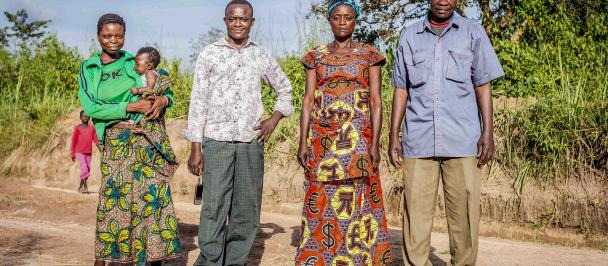Opening remarks delivered by Asako Okai at the virtual event: Business and Human Rights, A Global Priority.
Distinguished development partners, colleagues, ladies and gentlemen.
Please allow me to begin by thanking Hilde Hardeman representing the EU Commission, Asa (PRONOUNCED: OSA) Heden of the Government of Sweden, and Holger Dreiseitl representing the EU Presidency, for joining me in this introductory segment of today’s deep dive. UNDP is grateful for the partnership with the EU and Sweden in pursuit of more responsible and sustainable business practices.
The onset of the Covid-19 pandemic has created an unprecedented economic and social disruption; according to ILO and WHO nearly 500 million jobs have been lost and nearly half of the world’s 3.3 billion workforce could lose their livelihoods.
It has also hindered the implementation of the 2030 Agenda for Sustainable Development and of the Sustainable Development Goals. We are now faced with a huge challenge: how do we build back better from the pandemic in order to achieve the SDGs?
The answer – at least in part – is that this can only be done with the participation of the private sector. Businesses have a key role to play in addressing social inequality, economic exclusion, and climate change.
However, despite examples of businesses conducting themselves responsibly during the pandemic by respecting their labour rights, others have resorted to cost-cutting, while ignoring human rights standards in protecting their bottom line.
Progress on business and human rights and UNDP’s efforts
This only accentuates the need to hasten the implementation of the UN Guiding Principles on Business and Human Rights, which were recognised by the 2030 Agenda as one of its means of implementation.
Indeed, some progress has been made on this front. Since the adoption of the UN Guiding Principles in 2011, 24 states have produced National Action Plans. The latest was adopted last week by Japan. We are seeing more businesses introducing due diligence processes, and victims seeking redress for human rights violations.
UNDP has contributed to these processes since 2016 when, as part of its Global Rule of Law, Security and Human Rights program we started a regional initiative on Business and Human Rights in Asia. In the last 12 months we have scaled up our operations to a global level.
In the last 4 years UNDP has:
· Worked on the implementation of the UN Guiding Principles in 18 countries;
· Supported six governments in developing and implementing National Action Plans across Asia;
· Advised corporations on addressing human rights risks in their supply chains;
· Created opportunities for peer-learning for government officials, businesses and others: in our Asia Forum we engaged this year with 1200 business representatives;
This process has been spurred on by the example set by the European Union which has, along with its member states, led efforts to develop a “smart mix” of measures on business and human rights, including mandatory environmental and human rights due diligence.
The momentum for corporate accountability has led UNDP to develop a Global Initiative on Business and Human Rights, which aims to expand our work in Asia and move the needle in Africa, Arab States, Latin America and Eastern Europe and Central Asia.
As part of this Global Initiative, UNDP is collaborating with the UN Working Group on Business and Human Rights. This collaborative approach allows us to tackle major social and economic issues from a business and human rights perspective in partnership with governments, corporations, civil society, trade unions and other stakeholders.
One such issue is climate change and environmental degradation. Industries most responsible for climate change and environmental degradation are regularly implicated in severe human rights abuses, including forced labour and child labour.
UNDP is aware of proposed measures, such as the European Green Deal, intended to reverse these trends; we believe that their aims will be achieved more rapidly if informed by the standards contained in the UN Guiding Principles on Business and Human Rights.
To that end, UNDP will count on strong partnerships with actors such as OHCHR, ILO, OECD and the Global Compact, as well as with UN Member States, including Sweden, Germany and Switzerland with which it continues to successfully partner in implementing its programmes.
Summing up,
Greater pooling of resources and joint action would allow UNDP to have the same positive effect showed in Asia on responsible business practices in Africa and other regions.
We would therefore call on you to consider supporting our Global Initiative, to be presented subsequently at this event.
Thank you for your attention.

 Locations
Locations























